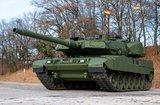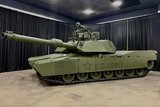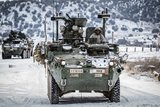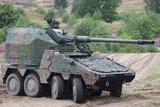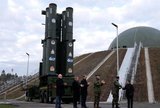EuroTrophy systems contracted for Leopard 2A8 tank buyers as demand rises
Rafael Advanced Defense Systems, the original designer and manufacturer of the system, states that more than 1,800 have been sold and, while not all customers are known, more than 1,000 of these have been bought by the US and Israel.









